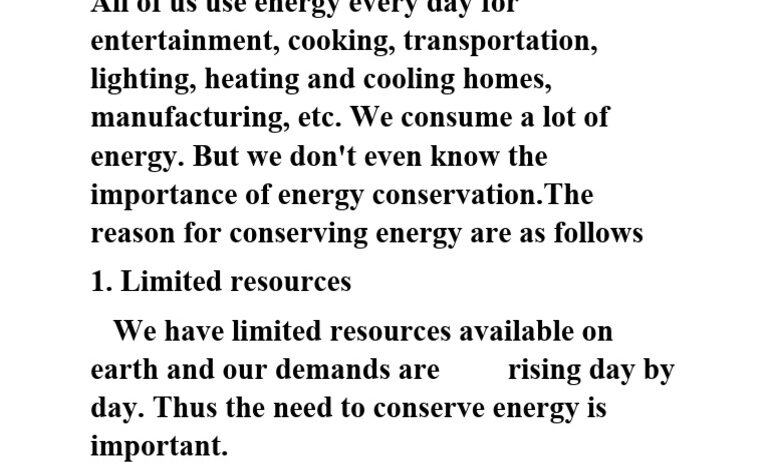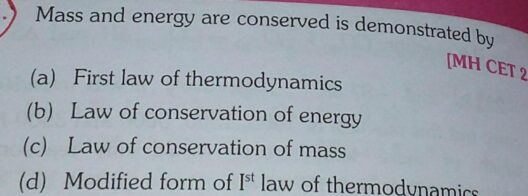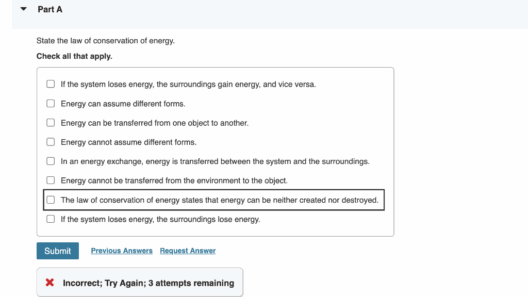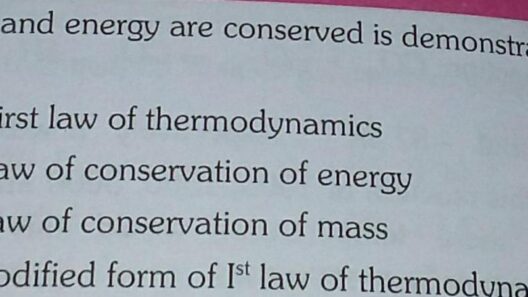Energy conservation is not merely a pragmatic endeavor; it is an existential necessity woven into the very fabric of our modern civilization. Today, as we grapple with the incessant challenges of climate change, resource depletion, and pollution, the mantra of conservation resonates like a clarion call. This article delves into the compelling reasons why we must conserve energy, elucidating its essential role in safeguarding our planet for future generations.
Imagine energy as the lifeblood of our technological society—an invisible yet omnipresent force that drives our daily activities, powers our cities, and fuels the very economy we depend upon. However, like all vital resources, energy is finite. Our reliance on non-renewable sources exacerbates the looming crisis of depletion and environmental degradation. Thus, conserving energy becomes not just a matter of choice but a critical imperative for sustainable existence.
Our planet is at a pivotal juncture, where the cost of inaction is spiraling beyond our immediate comprehension. The urgency of energy conservation cannot be overstated, and yet the allure of convenience often obscures this reality. As denizens of the 21st century, we are tasked with reevaluating our consumption patterns and embracing a culture of conscientious energy use.
The consequences of energy waste extend far beyond the immediate realm of higher utility bills. They reverberate through ecosystems, influencing biodiversity and climate stability. In essence, conserving energy is akin to nursing a delicate ecosystem back to health. Just as a gardener meticulously tends to fragile plants in the hopes of cultivating a thriving garden, we, too, must nurture our energy resources to enable future growth and prosperity.
Energy use and climate change are inextricably linked. The combustion of fossil fuels not only drains our energy reserves but also releases greenhouse gases into the atmosphere, igniting the engines of global warming. The paradox lies in the fact that our ravenous energy appetite begets the very crises we seek to mitigate. Consequently, conserving energy emerges as a dual solution: it lessens our ecological impact and fortifies our resilience against climate change.
To further appreciate the need for energy conservation, we can draw parallels with the concept of health. Just as our bodies function optimally when we consume a balanced diet and exercise regularly, our energy systems thrive when harnessed judiciously. Embracing energy-efficient technologies and adopting more frugal practices are essential steps in this journey. Every light bulb replaced with an LED, and every hour spent unplugging devices adds up, creating a symbiotic relationship between individual actions and communal benefits.
Let’s explore the multifaceted benefits of energy conservation. First and foremost, the most evident advantage is the reduction in energy bills. In an economy where every penny counts, conserving energy is a straightforward method to alleviate financial strain for households and businesses alike. This, in turn, leaves more resources available for investment in other essential areas such as education, health, and infrastructure.
Moreover, the ripple effects of conservation extend to job creation within emerging industries. Transitioning towards renewable energy solutions promotes new job opportunities, thereby invigorating local economies. These sectors not only foster sustainable practices but also spark innovation, positioning nations at the forefront of the global environmental movement.
On a larger scale, energy conservation can lead to diminished dependency on foreign fossil fuels, thereby bolstering national security. By investing in energy efficiency and renewable sources, countries can cultivate energy independence, mitigating the geopolitical tensions associated with energy scarcity. This autonomy fosters a sense of stability, enabling communities to thrive without the volatility of external energy markets.
The appeal of conservation also lies in its potential for social equity. Low-income households often bear the brunt of soaring energy costs. Through energy conservation initiatives, we can cultivate inclusive policies that ensure all communities have access to affordable energy. This equitable approach fosters a collective spirit, where shared responsibility manifests through collaboration and action.
Despite the myriad benefits, the path to energy conservation is fraught with obstacles. A significant hurdle is the pervasive culture of consumerism that inundates our everyday lives. The temptation to prioritize convenience often overshadows our collective responsibility to the environment. Hence, it is imperative to cultivate awareness about energy consumption, promoting education that underscores the significance of conscientious consumption.
Further amplifying the challenge is the inertia of existing infrastructures and regulations that tend to resist progressive change. Policymaking plays a pivotal role in facilitating a smoother transition towards energy conservation. By incentivizing renewable energy adoption and fostering innovation, governments can catalyze a paradigm shift that reshapes consumption models for the better.
As we inch toward an uncertain future, the clarion call for energy conservation resounds with ever-increasing urgency. The pivotal question that remains is not whether we should conserve but how effectively we can mobilize collective action. Each small step taken toward energy conservation creates ripples that can culminate in sweeping societal change.
In conclusion, the essential role of energy conservation in today’s world transcends simplicity and extends into the realm of necessity. By recognizing the remarkable interconnectedness of energy use, environmental stewardship, and economic vitality, we can forge a more sustainable future. Just as the meticulous gardener tends to each plant, we too must carefully nurture our resources with intention and foresight, ensuring that our energy reserves endure for generations yet to come.







